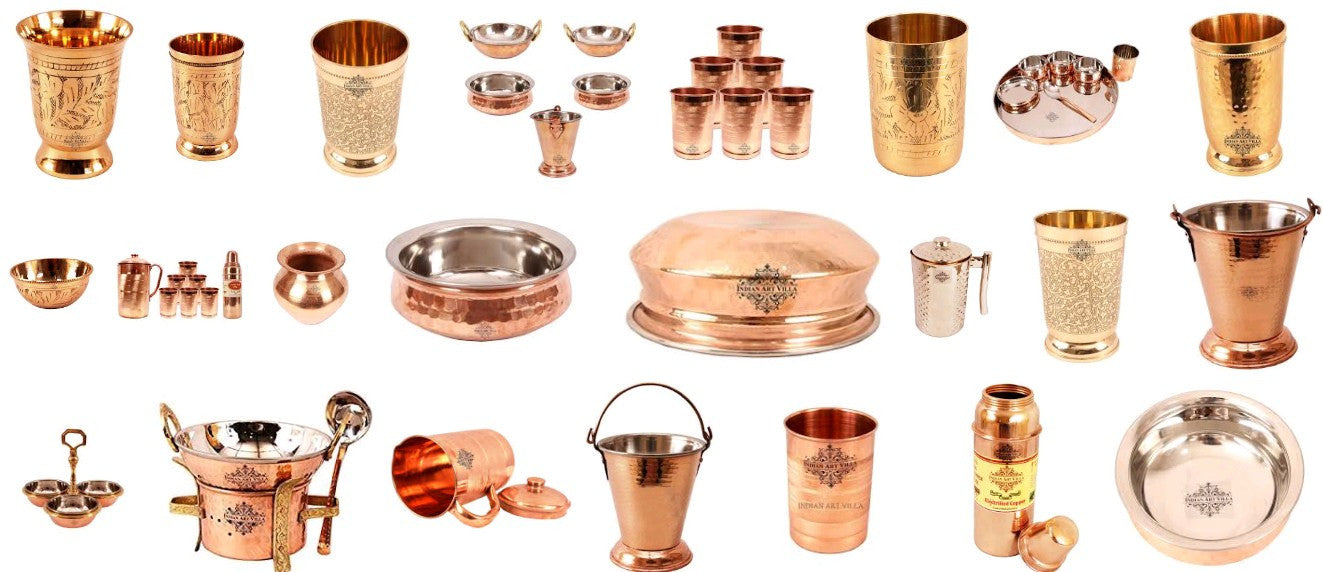Raise Your Workmanship with High-Performance Copper Products for Artisans
Raise Your Workmanship with High-Performance Copper Products for Artisans
Blog Article
Exploring the Diverse Applications of Copper Products in Modern Industries
Copper items have actually established themselves as crucial parts across a myriad of contemporary sectors, primarily as a result of their remarkable conductivity, malleability, and resistance to deterioration. From boosting the efficiency of electrical systems to playing a vital function in renewable resource innovations, the convenience of copper appears. In addition, its recyclability positions it as a sustainable choice in production and electronic devices. As markets progressively focus on innovation and sustainability, the varied applications of copper call for a closer evaluation, specifically concerning their possible influence on future environmental techniques and technical advancements.
Electrical Applications of Copper
Copper is a vital material in the electric industry, representing about 60% of the overall need for non-ferrous steels globally - Copper Products. Its remarkable electric conductivity, which is nearly two times that of light weight aluminum, makes it the recommended choice for a variety of electrical applications. From wiring systems in business and property structures to high-voltage power transmission lines, copper ensures effectiveness and reliability in electrical energy distribution
In addition to circuitry, copper is integral to the production of electrical elements such as generators, transformers, and electric motors. These elements leverage copper's thermal conductivity and malleability, vital for warmth dissipation and effective efficiency. Copper's resistance to corrosion enhances the life-span and resilience of electrical systems, making it an affordable remedy in the long term.
The growth of renewable resource resources, such as solar and wind power, has actually additionally raised the demand for copper in electric applications. As markets shift towards sustainable energy options, copper's duty becomes a lot more important. On the whole, the flexibility and performance features of copper strengthen its standing as a cornerstone product within the electric field, driving technology and efficiency across numerous applications.
Plumbing and Piping Solutions
In modern-day plumbing systems, the selection of materials considerably impacts both performance and long life. Copper has actually emerged as a favored choice as a result of its one-of-a-kind buildings, consisting of corrosion resistance and antimicrobial features. These attributes ensure that copper piping stays durable and safe for transporting potable water, a crucial consideration in domestic and commercial applications.
One of the crucial benefits of copper in plumbing is its capability to hold up against high temperatures and pressures, making it appropriate for a range of applications, from hot water systems to heating and cooling down networks. In addition, copper's adaptability allows for simpler setup in complicated piping designs, reducing the threat of leaks and failings.
Another noteworthy advantage is copper's long life expectancy, often going beyond half a century with correct maintenance. This long life not just minimizes replacement costs however additionally contributes to lasting practices by minimizing waste. Moreover, copper's recyclability aligns with contemporary environmental requirements, promoting a circular economic situation within the pipes sector.
Copper in Renewable Resource
The convenience of copper expands past plumbing applications, playing a crucial function in the eco-friendly energy market. In solar panels, copper is utilized in photovoltaic or pv cells and wiring, promoting effective power conversion and transmission.

Furthermore, as the global need for electric automobiles (EVs) rises, copper's function in battery systems and billing infrastructure ends up being also a lot more substantial. The product's capability to carry out electricity efficiently is important to the performance of EV batteries, improving variety and Find Out More charging rate.
Copper's Duty in Electronics
Electronics producing relies heavily on copper's outstanding homes, especially its high electrical conductivity and thermal efficiency. These attributes make copper an ideal choice for a large range of digital components, including connectors, circuit boards, and wiring. The steel's capability to successfully send electric signals guarantees minimal power loss, which is important in high-performance digital devices.
Moreover, copper's thermal conductivity plays a substantial function in warm dissipation, securing delicate parts from overheating. This is especially important in contemporary electronic devices, where compact layouts cause raised heat generation. Copper is also favored for its malleability and ductility, allowing it to be quickly shaped right into intricate styles that fulfill the demands of advanced electronic applications.
With the rise of consumer electronics, telecommunications, and electrical lorries, the need for copper in the electronic devices field proceeds to grow. Thus, copper remains a cornerstone product in the ever-expanding field of electronic devices.
Ingenious Utilizes in Manufacturing

One notable application remains in additive production, where copper-based products are used in 3D printing procedures. This enables the production of light-weight components and complicated geometries, particularly in the aerospace and automotive fields. In addition, copper's thermal conductivity makes it a suitable selection for warm exchangers, enhancing performance in industrial cooling systems.
In addition, the increase of wise manufacturing has seen the consolidation of copper in IoT gadgets, where its conductive capabilities support innovative sensing innovations. In the realm of renewable resource, copper is essential in the manufacturing of photovoltaic panels and wind turbines, helping with a lot more efficient energy conversion and distribution.
As sectors pursue sustainability and technology, copper's versatility and efficiency proceed to position it as a vital product, driving developments in production and adding to the advancement of smarter, more reliable products.
Conclusion
In summary, copper products demonstrate amazing adaptability throughout various contemporary markets. Copper Products. Their exceptional conductivity enhances electrical applications, while deterioration resistance makes certain reliability in plumbing. The essential role of copper in renewable resource and its necessary function in electronics underscore its significance in advancing sustainable practices. Additionally, ingenious usages in making emphasize copper's versatility and sustaining significance. Collectively, these applications illustrate copper's critical payment to technical progress and commercial efficiency in contemporary culture.
From enhancing the performance of electric systems to playing an essential duty in eco-friendly energy innovations, the convenience of copper is evident. As click for info sectors progressively prioritize technology and sustainability, the diverse applications of copper require a closer evaluation, particularly regarding their possible effect on future environmental practices and technical innovations.
The development of renewable power resources, such as solar and wind power, has additionally increased the need for copper in electric applications. Overall, the convenience and performance qualities of copper solidify its condition as a foundation product within the electrical industry, driving advancement and effectiveness across different applications.
The convenience of copper prolongs past pipes applications, playing an essential duty in the sustainable power field.
Report this page